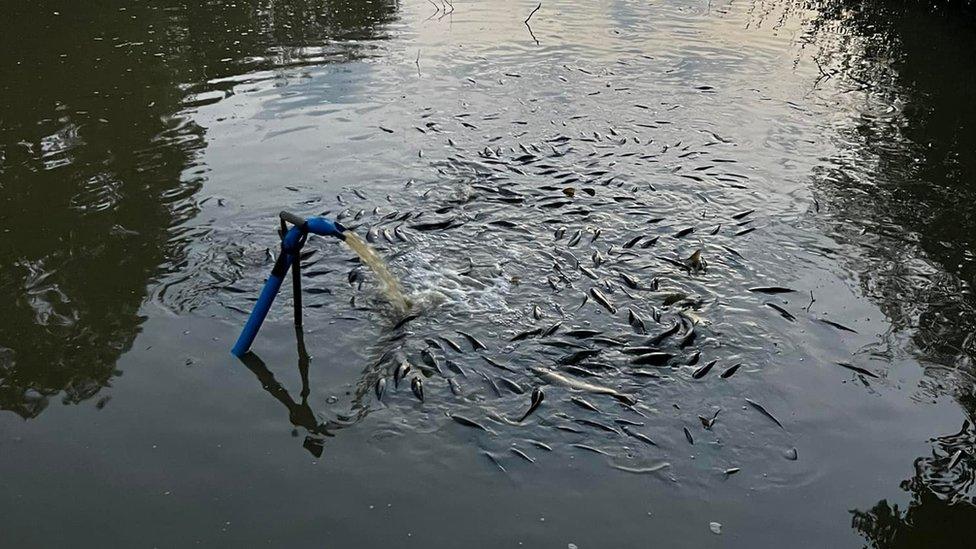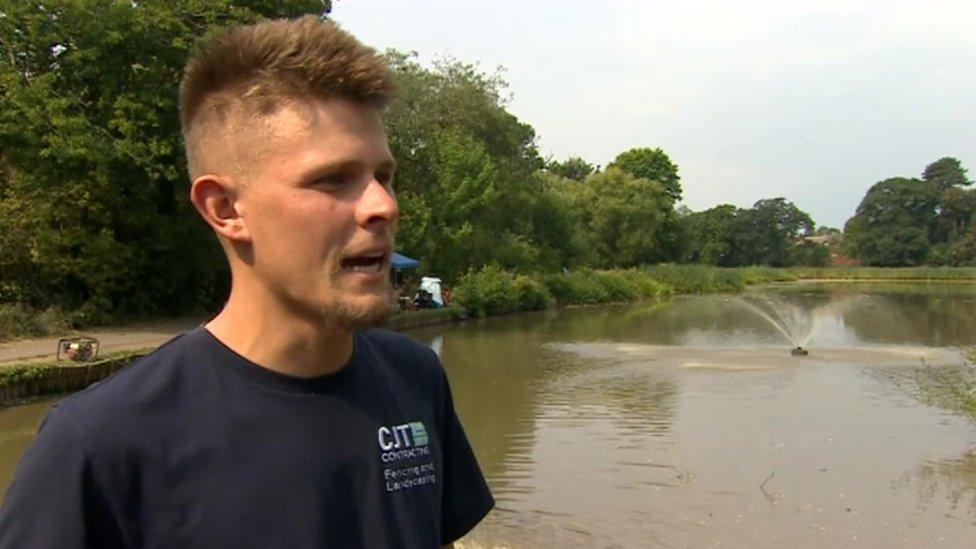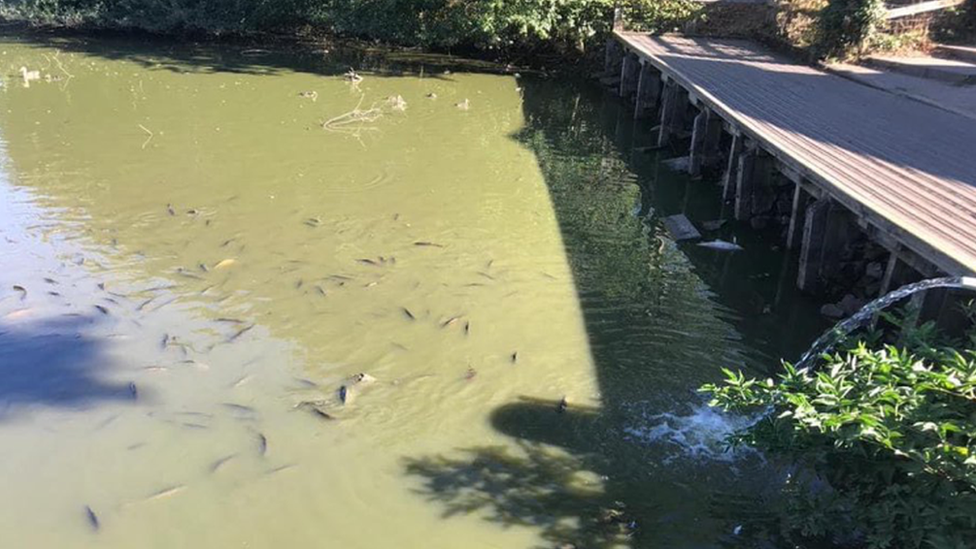Abbey Fields volunteers unite in bid to save fish
- Published

Water has been pumped into the lake after a crowdfunding effort
Volunteers are racing against time to try and save hundreds of fish at a popular local beauty spot.
More than 300 fish are already believed to have died at Abbey Fields lake, in Kenilworth, due to low water levels caused by the heatwave.
Last week, Warwick District Council suggested it was largely powerless to help and warned more would die.
That prompted people to raise money and arrange for pumps to replenish the lake in a bid to save some fish.
They say the remaining carp in the lake were "buzzing" following their intervention - although the Environment Agency warned pumping water in could make matters worse.
Severn Trent Water had initially told the local authority to stop adding water from the mains, due to shortages.
On Monday, the water firm initially offered to supply non-drinking water, but following a review said various options had been explored but were not "technically viable or appropriate".

Volunteer Calum Thorpe said 19,000 litres of fresh water had been added to the lake
The people behind the effort to save the fish remain desperate to find a long-term solution, with local business owner Darren Rees among those who stepped forward to help over the weekend.
"Before we got the pumps in, all the fish in the water seemed to have gone limp," he said.
"As soon as the new water starting flowing in they were buzzing though and you could see them all jumping out above the surface."
Mr Rees called on the local authority to discuss measures with the Environment Agency, anglers and others to avoid a repeat of the problem as climate change is expected to cause more frequent heatwaves.
Kenilworth councillor Richard Hales praised the "heart-warming" community spirit involved.

More than 300 fish have died in the lake at Abbey Fields after problems emerged on Friday
"When the water started going in there was a big cheer from everyone there," he said.
"It was phenomenal."
A crowdfunding campaign raised nearly £2,000, which paid for the pumps and generators.
However, the Environment Agency said using pumps and aerators in bodies of still water experiencing low levels would disturb the sediment and actually reduce the amount of dissolved oxygen, not improve it.
It added that transporting the carp elsewhere in high temperatures could result in more dying and put other fisheries at risk from "disease or overstocking".
Warwick District Council has been contacted for a comment.

Follow BBC West Midlands on Facebook, external, Twitter, external and Instagram, external. Send your story ideas to: newsonline.westmidlands@bbc.co.uk, external
Related topics
- Published12 August 2022
